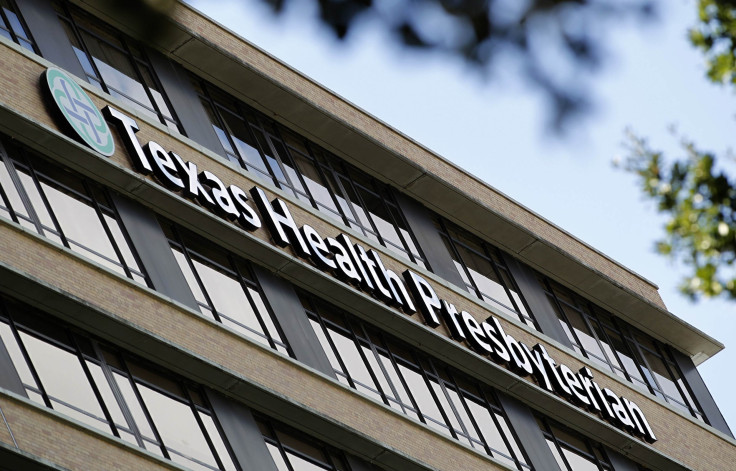Ebola Outbreak: Texas Health Presbyterian Hospital Dallas Now 'Ebola Epicenter'

The Texas hospital where Thomas Eric Duncan, the first American to contract Ebola on U.S. soil, succumbed to the virus is under intense scrutiny, as two nurses who cared for Duncan have tested positive for the disease. Until recently, the nearly 900-bed acute-care hospital upheld a prestigious reputation.
Since opening its doors in 1966, Texas Health Presbyterian Hospital Dallas has received a slew of awards for its excellence in nursing, cardiac care, cancer programs and delivering babies, among others. In 2013, it was the only hospital in Texas to be honored with the Premier AEIX Risk Management Award for patient safety. This year, seven nurses from Texas Health Presbyterian were included in Dallas-Fort Worth’s “Great 100 Nurses.”
“I’m sure it has suffered,” Dallas County’s top elected official, Judge Clay Jenkins, told the New York Times Wednesday. “It has had a great reputation as a great hospital.”
Located in the heart of Dallas, Texas Health Presbyterian went from being “the Neiman Marcus of hospitals” to the “Ebola epicenter” in just three weeks, Suzanne Worthing, a longtime patient, told the New York Times. And it has some members of the community, like Worthing, considering cancelling their appointments for fear of getting infected.
The Centers for Disease Control has been unable to pinpoint how two young nurses, Nina Pham and Amber Joy Vinson, were exposed. In a press conference Monday, CDC director Dr. Thomas Frieden said officials are doing an “in-depth review and investigation.” Frieden also apologized for earlier remarks he made blaming a “breach in protocol” at the hospital as the cause for infection spreading to Pham.
“Some interpreted that as finding fault with the hospital or the health care worker, and I’m sorry if that was the impression given; that was certainly not my intention,” Frieden said Sunday. “What we need to do is all take responsibility for improving the safety of those infected in the care of an Ebola patient. [Pham] was there trying to help the first patient survive.”
In an interview with the New York Times Wednesday, Dr. Daniel Varga, chief clinical officer at Texas Health Resources, said health workers had not started wearing full biohazard suits until two days after Duncan was admitted to the hospital, when he tested positive for Ebola. Beforehand, the hospital was following CDC protocols, wearing personal protective equipment including masks, gloves, gowns and shields, Varga said.
Nurses at Texas Health Presbyterian told National Nurses United hospital staff received inadequate and inconsistent guidance on how to treat Ebola safely.
According to insider information obtained by National Nurses United, when Duncan first arrived at Texas Health Presbyterian, he had an elevated temperature but was sent home. He returned under his own suspicion he may have Ebola. Duncan was reportedly left for several hours in an area where other patients were present.
"There was no advance preparedness on what to do with the patient, there was no protocol, there was no system," according to an alleged statement from nurses obtained by National Nurses Unitied.
Court records dug up by the New York Times reveal several instances of less-than-impressive outcomes in the hospital's emergency room. One patient's records show the Texas Health Presbyterian failed to diagnose tuberculosis, sending him home with antibiotics instead, as was the case with Duncan's initial visit. The patient, Dwain Williams, received a correct diagnosis two weeks later in Los Angeles, after exposing family members and airplane passengers, the New York Times reported Wednesday.
Initially, nurses cared for Duncan with whatever protective gear was available, at a time when he was severely ill and producing copious amounts of contagious fluids. The nurses said no protocols were breached because there were none, according to National Nurses United.
Last Friday, Texas Health Presbyterian added global public relations firm Burson-Marsteller to its communication team for support. This week, CDC officials announced changes to existing federal guidelines for the protective gear worn by health workers when caring for Ebola patients, the New York Times reported.
“We’re a hospital that may have done things different with the benefit of what we know today,” Varga told the New York Times. “But make no mistake: No one wants to get this right more than our hospital, the first to diagnose and treat this insidious disease.”
© Copyright IBTimes 2025. All rights reserved.





















